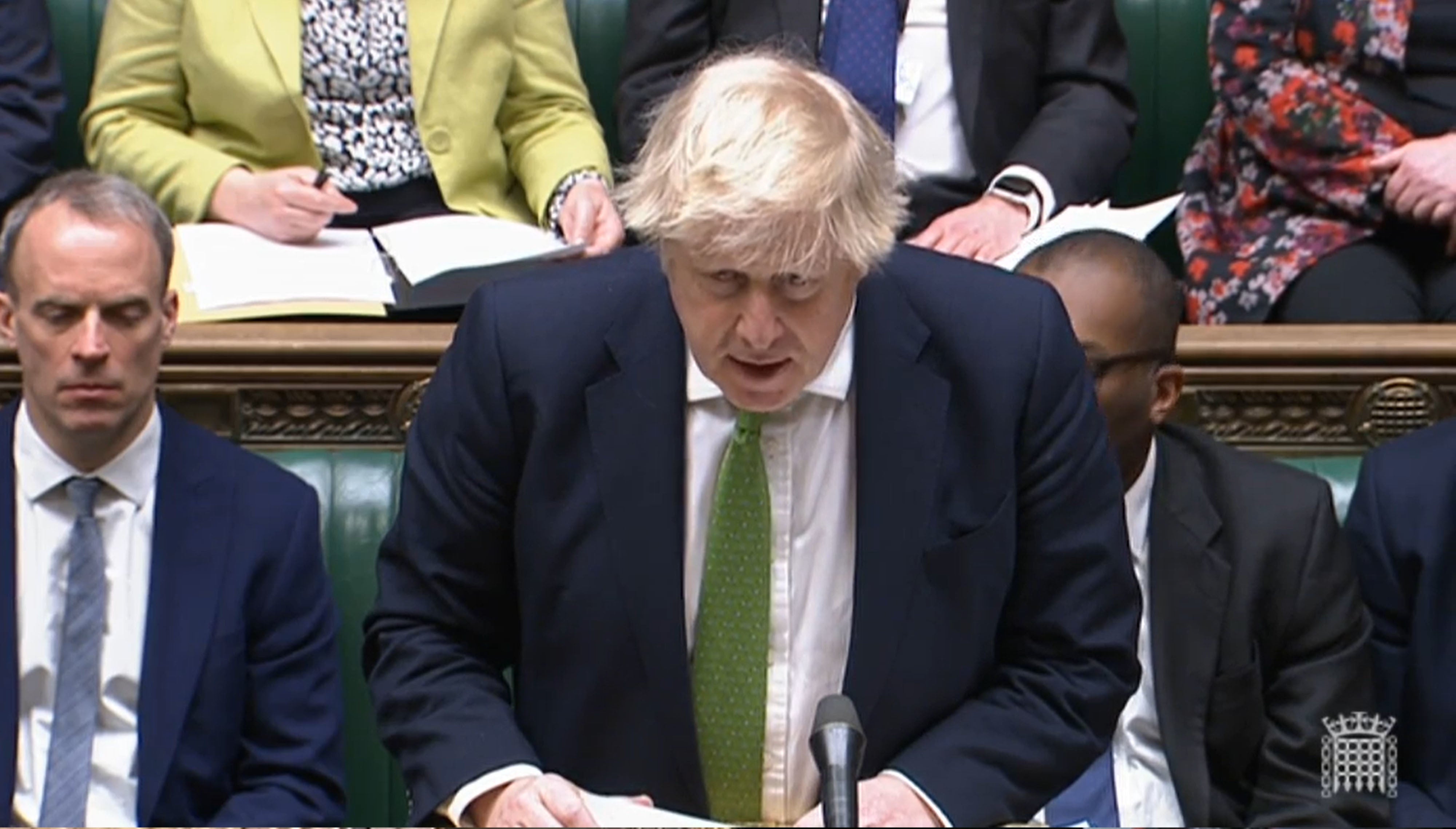Analysis: UK targets ‘fretwork’ of Russian energy infrastructure
Britain’s first tranche of sanctions after Russia ordered troops into Ukraine take aim at a clutch of banks and oligarchs

International partners imposed a first tranche of targeted sanctions against Russia on Tuesday, after the country ordered what it termed “peacekeeping” troops into breakaway regions of Ukraine.
This is not, as yet, what one UK official called the “seismic” hit in terms of punitive actions against Moscow. Instead, it is a “signal of intent”, they said.
Boris Johnson told MPs that the UK would sanction three high-net-worth individuals and five Russian banks: Rossiya, IS Bank, General Bank, Promsvyazbank and the Black Sea Bank.
Russia’s central bank listed Promsvyazbank as a systemically important financial institution in 2021.
Three figures will see their assets held in the UK frozen: Gennady Timchenko, Boris Rotenberg and Igor Rotenberg.
“Any assets they hold in the UK will be frozen, the individuals concerned will be banned from travelling here, and we will prohibit all UK individuals and entities from having any dealings with them,” Mr Johnson said. Other measures were “at readiness”, he added.
The sanctions are aimed at the “fretwork” of energy infrastructure and financing on which Russia depends, according to a Whitehall source.
The two Rotenbergs and Mr Timchenko all have significant investment in energy infrastructure. Mr Timchenko founded Volga Group, a Russia-based organisation that described itself as “one of the largest investment groups in Russia” according to an undated presentation.
Boris and Arkady Rotenberg co-own Stroygazmontazh, one of the biggest oil and gas infrastructure companies in Russia.
However, two senior City figures told The Independent that they thought the step, which was limited, aside from Promsvyazbank, to relatively small banks and a clutch of oligarchs, did not go as far as expected, even as an interim measure.
Targeting energy infrastructure is informed by Russia’s role as an energy export powerhouse; it’s the world’s second-biggest natural gas exporter and third-largest oil producer, according to the US Energy Information Administration, accounting for 11 per cent of global supply in 2020. Analysts believe that, should it shut off supplies to the west, Brent crude would hit $110 (£81) a barrel.
Russia’s announcement that it formally recognised two separatist republics in Ukraine drove up the price of oil to a seven-year high, with the Brent crude oil-price benchmark closing in on $100 a barrel. Meanwhile, the Russian ruble has dropped to a near two-year low against the dollar.
Market concerns were further inflamed when Germany announced that it would halt the final stage of its $10bn Nord Stream 2 natural-gas pipeline from Russia. The step followed US sanctions targeting financial flows into the breakaway regions of Ukraine.
Further details of EU sanctions on banks and individuals are expected later on Tuesday.
Russia also holds significant sway over food-related goods. It accounts for 38 per cent of the global potash supply, along with Belarus, according to figures gathered by the Canadian government, and 30 percent of global wheat exports when combined with Ukraine.
A two-month block on exports of ammonium nitrate – a key component of fertiliser – imposed on the Kremlin in February 2022 has driven up costs for farmers across Europe, including the UK.
Subscribe to Independent Premium to bookmark this article
Want to bookmark your favourite articles and stories to read or reference later? Start your Independent Premium subscription today.

Join our commenting forum
Join thought-provoking conversations, follow other Independent readers and see their replies